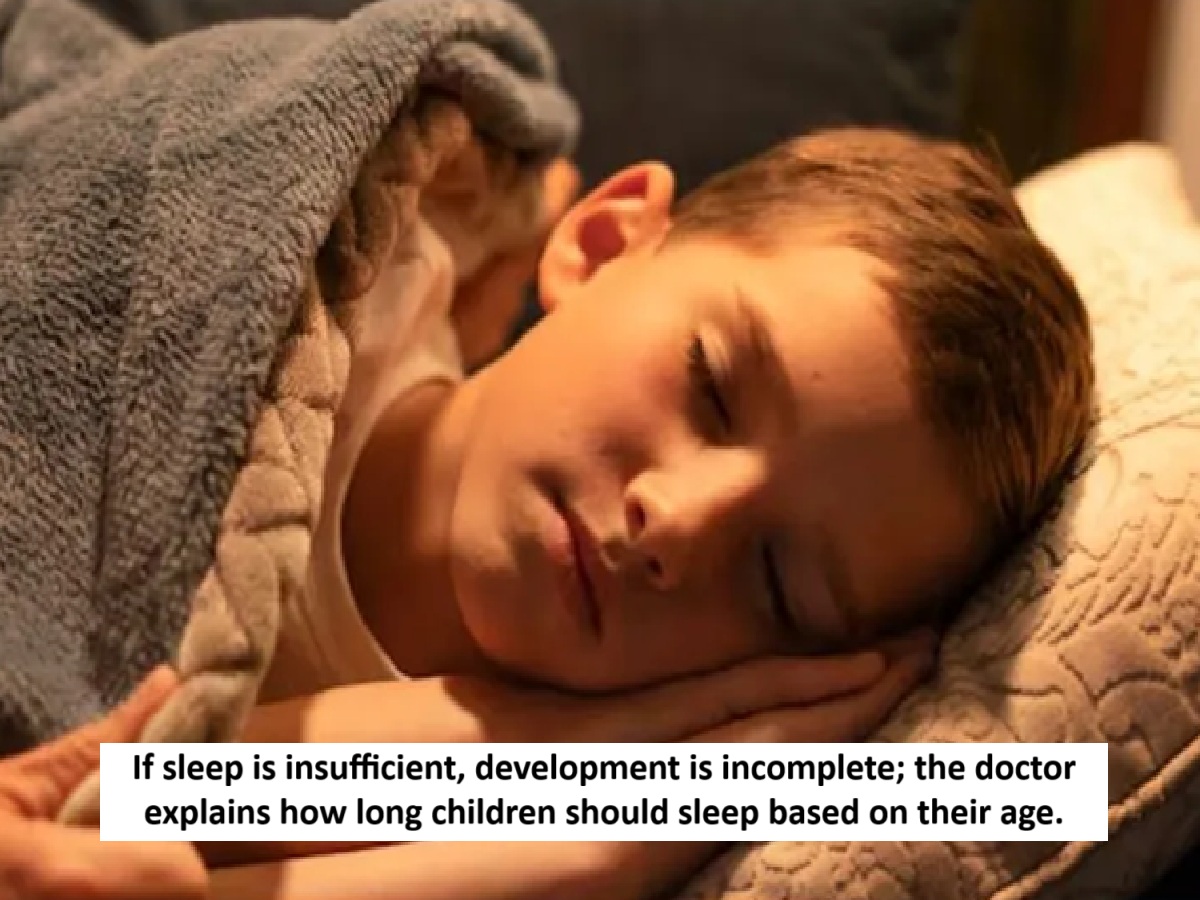
News Topical, Digital Desk : Sleep plays a crucial role in a child's development. Just as plants need the right amount of sunlight, water, and fertilizer to thrive, proper nutrition and adequate sleep are crucial for a child's development. Only when children get adequate sleep can they develop physically, mentally, and emotionally.
In such situations, questions often arise about how long children should sleep (Kids Sleep Duration by Age) and what impact it can have on their health if they don't get enough sleep.
Children's sleep needs vary with their age. Newborns typically sleep 14 to 17 hours a day, while toddlers (1-3 years) need 11 to 14 hours. School-age children (6-12 years) need 9 to 12 hours of sleep, and adolescents (13-18 years) should sleep 8 to 10 hours. It's not just the duration of sleep that's important, but its quality is as well. Uninterrupted, deep, and restful sleep helps a child feel refreshed and energized the next day.
Physical side effects of sleep deprivation
Lack of adequate sleep directly impacts children's physical health. First, immunity weakens, making children more prone to colds, infections, and fatigue. The body releases growth hormones during sleep, so lack of sleep can affect children's height and overall physical development. Furthermore, hormonal imbalances increase the risk of obesity. Long-term sleep deprivation increases the risk of future problems like high blood pressure and metabolic disorders.
mental health impact
Lack of sleep has a profound impact on a child's mental and emotional health. It can lead to symptoms like irritability, mood swings, and difficulty controlling emotions. A tired mind is unable to focus on studies, learn new things, and remember them, which directly impacts their academic performance. Lack of sleep increases the likelihood of anxiety and stress in children, making them easily overwhelmed by even minor problems.
What can be done to avoid this?
To prevent these problems, it's important to develop good sleep habits in children. Establishing a regular bedtime, cutting off electronic devices like mobile phones and TVs an hour before bedtime, and creating a quiet, dark, and comfortable sleeping environment can all help improve sleep quality.
Read More: Does your face suddenly swell? A doctor explains the possible cause.
--Advertisement--

 Share
Share



